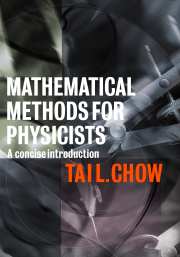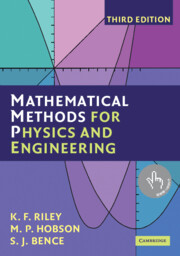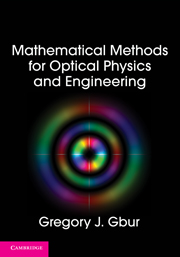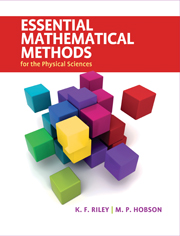Mathematical Methods for Physicists
This text is designed for an intermediate-level, two-semester undergraduate course in mathematical physics. It provides an accessible account of most of the current, important mathematical tools required in physics these days. It is assumed that the reader has an adequate preparation in general physics and calculus. The book bridges the gap between an introductory physics course and more advanced courses in classical mechanics, electricity and magnetism, quantum mechanics, and thermal and statistical physics. The text contains a large number of worked examples to illustrate the mathematical techniques developed and to show their relevance to physics. The book is designed primarily for undergraduate physics majors, but could also be used by students in other subjects, such as engineering, astronomy and mathematics.
- Each chapter includes a number of worked examples
- Includes over 300 problems
- A flexible text that can also be used for one-semester courses by omitting some sections or chapters on more advanced topics
Product details
July 2000Paperback
9780521655446
572 pages
246 × 176 × 32 mm
1.055kg
113 b/w illus. 316 exercises
Available
Table of Contents
- Preface
- 1. Vector and tensor analysis
- 2. Ordinary differential equations
- 3. Matrix algebra
- 4. Fourier series and integrals
- 5. Linear vector spaces
- 6. Functions of a complex variable
- 7. Special functions of mathematical physics
- 8. The calculus of variations
- 9. The Laplace transformation
- 10. Partial differential equations
- 11. Simple linear integral equations
- 12. Elements of group theory
- 13. Numerical methods
- 14. Introduction to probability theory
- Appendices
- Further reading
- Index.





